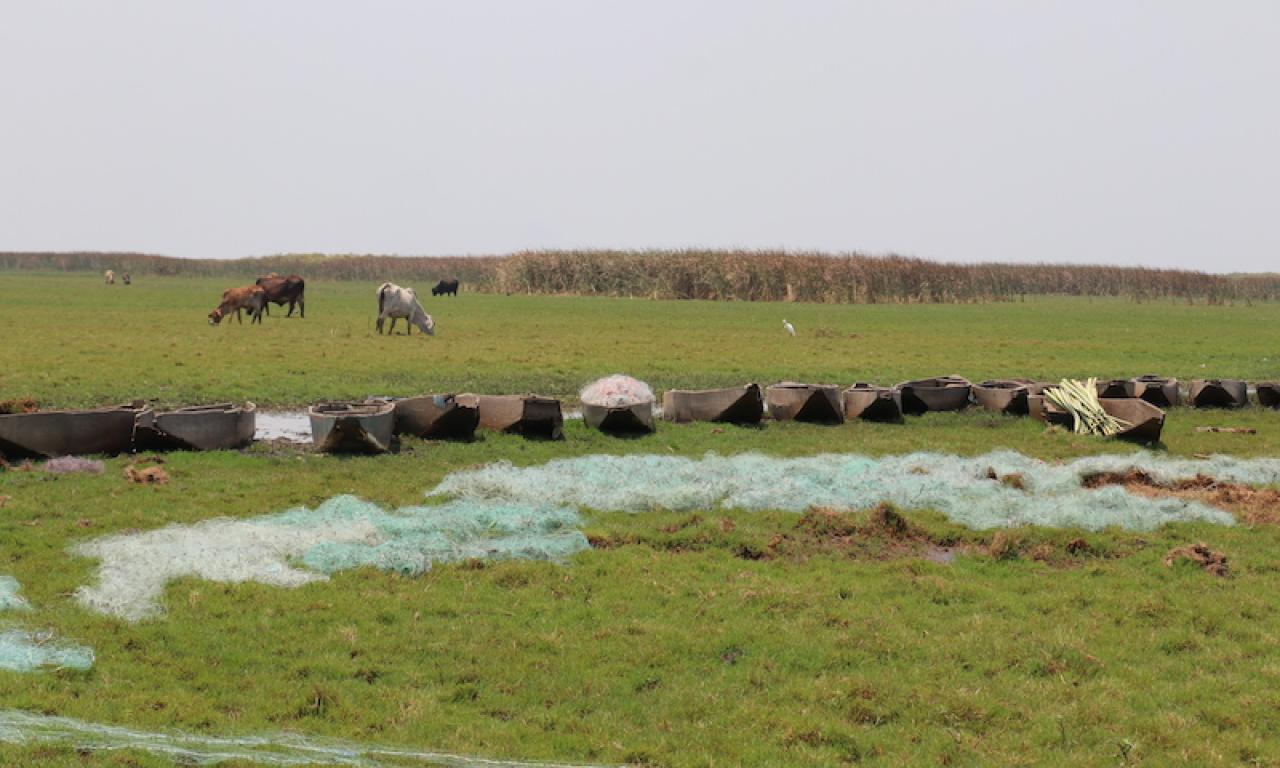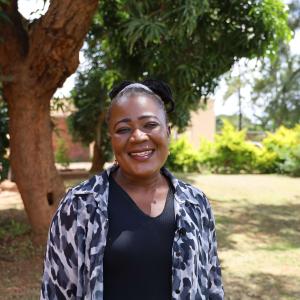
- The Kafue flats are a vital asset in the life of the people who live near the wetlands because they are a source of income.
- The traditional leaders in Zambia play a critical role in ensuring sustainable land and water use management.
- Under the AquaPlans Work Package 3 (WP3) of the Aquatic Foods CGIAR Initiative Initiative, WorldFish and IWMI partner with the local chiefs to ensure sustainable use of the Kafue flats.
Traditional leaders in Zambia, such as chiefs, have historically been the proponents of natural resource management, particularly land and water use in their communities. As key opinion leaders, they play a critical role in ensuring sustainable land and water use management and act as a bridge between the community and development partners.
WorldFish, together with the International Water Management Institute (IWMI), will be implementing Work Package 3 (WP3) under the Aquatic Foods CGIAR research initiative termed AquaPlans in the Kafue Flats. This work package aims to improve the management of aquatic food systems in multifunctional landscapes. The two partners anticipate that this work package will assist the government and other stakeholders in responding to the vulnerability of the foodscapes to multiple stressors by assessing those risks and vulnerabilities through participatory scenario planning.
A meeting with key stakeholders was convened in late October 2022 in Monze, Southern Province of Zambia to discuss implementation strategies for the initiative. Five chiefs based around the Kafue flats participated in the stakeholder engagement meeting including Chief Nalubamba of Namwala, Chief Choongo of Monze, Chief Hamusonde of Monze, Chief Mungaila of Namwala and Chieftainess Muwezwa of Itezhi tezhi as well as Glisten Chibiya Choomba representing the Mwanachingwala Chiefdom of Mazabuka.
Victor Siamudaala, WorldFish country director for Zambia and Southern Africa, reiterated in his remarks the importance of engaging all key stakeholders in achieving sustainable resource governance of the Kafue flats.
Conserving and restoring the Kafue river basin through partnership
“The Kafue river basin is not just any river to us. It is our home and it provides us with food,” described Chief Choongo of Monze.
“That is why when we hear of organizations that want to help us restore the integrity of the wetlands, we are ready to partner with them because it is our mainstay. All efforts to help us conserve our wetlands are very welcome and treated with the utmost attention. I am ready to engage my community on this project and thank WorldFish and IWMI for this initiative,” he added.
Many proposals have been made to harness the Kafue flats for agricultural uses. However, pastoral farming is the primary source of income for the people who live near the wetlands. They value their animals over their crops and will continue to raise cattle in addition to other economic pursuits made feasible by the fertility of the Kafue flats, mainly agricultural ones.
“We are also fishermen and we depend on fish to provide us with food and protein. We are inseparable from our fish, cattle and birds. We found them here and we would like to leave them for the next generation,” explained Chief Choongo.
Owning the conservation and restoration efforts
Poverty and the lack of resources sometimes outweigh the chiefdoms’ principles against overfishing, which even go against the by-laws that have been put in place, including those against the indiscriminate cutting down of trees.
“Social economic factors are affecting the way we look at these natural resources,” explained Chief Nalubamba.
“People cut trees without thinking about livelihoods beyond the meager money they obtain in the interim,” he added.
“The Kafue river is a source of livelihood for our people and an economic hub for the rest of the country. This is why it needs to be conserved and restored. We are very excited about this project. My fellow chiefs and I are ready to take ownership of the project in our communities,” said Chief Nalubamba on behalf of his counterparts.
The Kafue river basin has received attention and has been dubbed a gold mine due to the emergence of new economic activities there, some of which are dependent on the conservation and restoration of the ecosystem.
Chieftainess Muwezwa further stated that because everyone is affected by the challenges, having both men and women participate will have an even greater effect.
The International Crane Foundation, World Wide Fund for Nature, Solidaridad, Bird Watch, Department of National Parks and Wildlife, Department of Fisheries and Community Resource Boards were among the other organizations operating in the area that were represented at the meeting.
The initiative seeks to promote a holistic approach to natural resource conservation in the Kafue flats.


